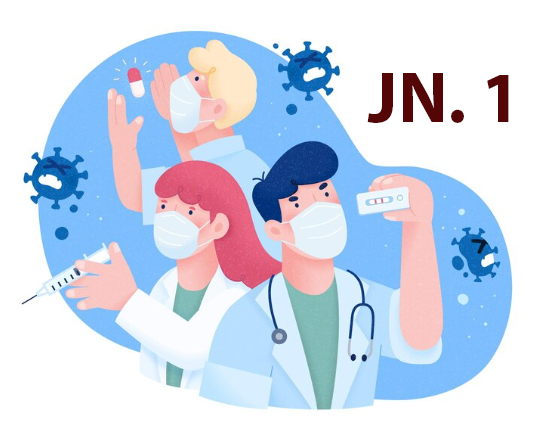By Ruth Bayang
NORTHWEST ASIAN WEEKLY
There is new concern over the latest COVID variant JN.1 as the state of Washington and the nation return to school and work this new year.
A long list of COVID-19 variants and mutations have developed since the virus arrived in the U.S. over three years ago.
The Centers for Disease Control and Prevention (CDC) reported 29,000 COVID hospitalizations in the week before Christmas, the most recent data, compared with 39,000 the previous year. The agency has reported an average of 1,400 weekly deaths since Thanksgiving, less than half of the fatalities at the same point last year.
UW Medicine hospitals this week were treating 55 inpatients with COVID-19. Infectious-diseases specialist Dr. Helen Chu says in a news release from UW Medicine that transmission of both COVID-19 and flu is trending up in Washington state.
“I do think that the numbers will continue to climb very, very quickly over the course of the next several weeks as people go back to work, as they start spreading these viruses to their friends, and family, and coworkers— this is really a good time to go ahead and get your vaccine if you haven’t yet.”
According to the CDC, Washington is among the states with a high rate of respiratory illnesses.
“We have some data from last year when we saw all three viruses [including RSV] circulating, and it’s looking like having two infections at the same time is worse in both children and adults,” Chu said. “Having COVID and flu simultaneously increases the amount of time you are on the ventilator and increases your risk of death in the hospital.”
She said the updated COVID-19 vaccine introduced in the fall provides protection against JN.1, the newly dominant variant, according to the CDC. Unfortunately, however, only a minority of Washingtonians are current on their COVID-19 and flu vaccines as of this week.
 “The vaccine rates in the community are very, very low.” Chu added, “With COVID, we’re at 20%. With the flu, we’re at 30%. And usually with flu, we’re at 40%. And COVID booster vaccines, only 20% of people in Washington state are currently up to date on their COVID boosters.”
“The vaccine rates in the community are very, very low.” Chu added, “With COVID, we’re at 20%. With the flu, we’re at 30%. And usually with flu, we’re at 40%. And COVID booster vaccines, only 20% of people in Washington state are currently up to date on their COVID boosters.”
“It’s certainly not too late,” Chu said. “Now would be a good time to get both your flu and your COVID vaccines.”
Learn more about getting Flu, COVID-19, and RSV vaccines in this link.
There is no evidence that JN.1 causes more serious illness or has significantly different symptoms than other circulating variants. According to the CDC, current COVID symptoms of a JN.1 infection may include cough, sore throat, headache, muscle aches, fever, change in or loss of taste or smell, congestion and runny nose, fatigue, “brain fog” (feeling less wakeful and aware), shortness of breath, gastrointestinal symptoms such as upset stomach, and mild diarrhea.
The type and severity of symptoms a person experiences usually depends more on a person’s underlying health and immunity rather than the variant which caused infection. The latest COVID-19 vaccine and treatments are expected to work against JN.1 despite its mutated form.
The CDC still recommends people isolate themselves for five days after testing positive. Protective efforts can help as well—staying away from people who are sick, strategic masking when among people in confined spaces, and hand-washing.
The continued growth of JN.1 suggests that the variant is either more transmissible or better at evading our immune systems, according to the CDC.
Every American can order four free at-home COVID-19 tests from the government, which will be delivered by mail via the U.S. Postal Service. To order your free tests, go to COVIDTests.gov.
Made possible in part by the Washington State Department of Health through a grant from the Centers for Disease Control and Prevention. This information does not necessarily reflect the official policies of the Washington State Department of Health or the Department of Health and Human Services.



